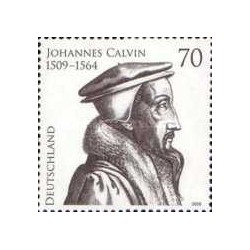- جدید
- ناموجود



Sweden 1979 - Johan Olof Wallin 1v
توجه : درج کد پستی و شماره تلفن همراه و ثابت جهت ارسال مرسوله الزامیست .
توجه:حداقل ارزش بسته سفارش شده بدون هزینه پستی می بایست 100000 ریال باشد .
توجه : جهت برخورداری از مزایای در نظر گرفته شده برای مشتریان لطفا ثبت نام نمائید.
| The Most Reverend Johan Olof Wallin | |
|---|---|
| Archbishop of Uppsala Primate of Sweden |
|
 |
|
| Church | Church of Sweden |
| Archdiocese | Uppsala |
| Appointed | 1837 |
| In office | 1837-1839 |
| Predecessor | Carl von Rosenstein |
| Successor | Carl Fredrik af Wingård |
| Orders | |
| Consecration | 28 March 1824 by Carl von Rosenstein |
| Rank | Metropolitan Archbishop |
| Personal details | |
| Born | (1779-10-15)October 15, 1779 Stora Tuna, Dalarna, Sweden |
| Died | June 30, 1839(1839-06-30) (aged 59) Uppsala, Sweden |
| Nationality | Swede |
| Parents | Johan Abraham Wallin Beata Charlotta Harkman |
| Spouse | Anna Maria Dimander (1810-1839) |
| Alma mater | University of Uppsala |
Johan Olof Wallin, (15 October 1779 – 30 June 1839), was a Swedish minister, orator, poet and later Church of Sweden Archbishop of Uppsala, Sweden between 1837-1839.[1] He is most remembered today for his hymns.
He was born in Stora Tuna in Dalarna (now part of Borlänge Municipality, Dalarna County) as the oldest son in a large family, and went to school in Falun. His parents did not have much money, but because he was a bright student he managed to get enrolled at the University of Uppsala in 1799. Four years later he obtained his Master of Arts, and after another three years he was ordained minister.
While he was studying, he got his first poem published in Upsala tidningar (1802). The following years he wrote and translated several other poetic works, and received several awards from the Swedish Academy for his work. Among his awarded works were translatations of Horace and Virgil; and for a song about Gustav III he was awarded the high sum of 200 ducats. His poetry was, however, by some considered too rhetorical and out-dated compared to the then flourishing Romantic poets. Wallin did not take the criticism light-hearted, but adapted to the new style which was more emotional and less influenced by the Latin poets.
In 1810 he married Anna Maria Dimander. In the same year, he was elected to the Swedish Academy. In addition to this, he took upon himself to commission the creation of a new Swedish book of hymns. The project was finished in 1816. It was approved by King in 1819, and printed the same year. Of the 500 hymns, Wallin had written 128, translated 23, and involved himself in the revision of another 178.[2] Additionally the structure or arrangement of the hymnal was mainly his creation. In 1827, he was elected a member of the Royal Swedish Academy of Sciences.
He held many different clerical posts throughout his life. Ultimately he was ordained Archbishop of Sweden in 1837. But before he even had moved to Uppsala (seat of the bishopric), he died a sudden death in 1839, and was buried in Stockholm. The Swedish Biographical Dictionary of 1906 indicates that he at his death was "mourned by the entire Swedish people". The Swedish Literature in Summary (1904) writes that no Swedish orator or preacher ever had his distinctive glow as a speaker.
He was undoubtedly a talented person in literature and a most pious man. But he was weak in body, and this trait in combination with his strong work ethic may have caused stress on his health.

During the remainder of the 19th century he was highly beloved and praised by writers and intellectuals in Sweden. In some places his 100th anniversary was celebrated in 1879. A monument of him was also erected in his hometown, and a bust of him was unveiled in Falun in 1917. During the 20th century, the harsh Lutheranism associated with Wallin was being increasingly scorned in Sweden as being oppressive and guilt stricken, and this trend in combination with increased secularization has diminished his reputation; today he is remembered for merely those hymns still in use in Swedish Churches, the traditional Christmas hymn "Var hälsad, sköna morgonstund" among them.[3]
Besides hymns, Wallin wrote several secular poems highly praised in his time. He published several sermons and speeches. Of his hymns still in use in Swedish hymnbooks today, a few have also been translated into English and published in hymnals such as the Lutheran Book of Worship. These include——besides "Var hälsad, sköna morgonstund" ("All Hail to you, O blessed morn")——"Du som fromma hjärtan vårdar" ("Christians, while on Earth abiding") and "Vi lovar Dig, O Store Gud" ("We worship you, O God of might"), as well as Din klara sol går åter opp.
His style is described as melancholic but ravishing, often dealing with death, with frequent references and quotes from the Bible. His grand work was the long poem Angel of Death (sv), finished only about year before his death. Compared to Swedish poets contemporary with Wallin, some consider him second only to Esaias Tegnér.
تشکر نظر شما نمی تواند ارسال شود
گزارش کردن نظر
گزارش ارسال شد
گزارش شما نمی تواند ارسال شود
بررسی خود را بنویسید
نظر ارسال شد
نظر شما نمی تواند ارسال شود

Sweden 1979 - Johan Olof Wallin 1v
check_circle
check_circle















